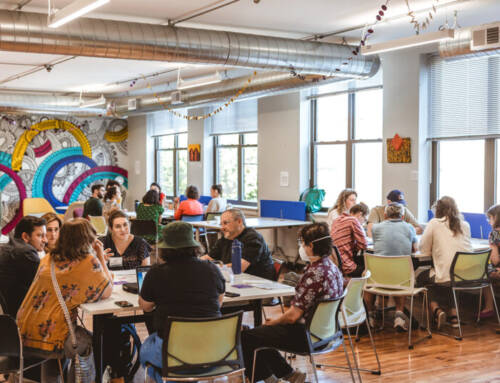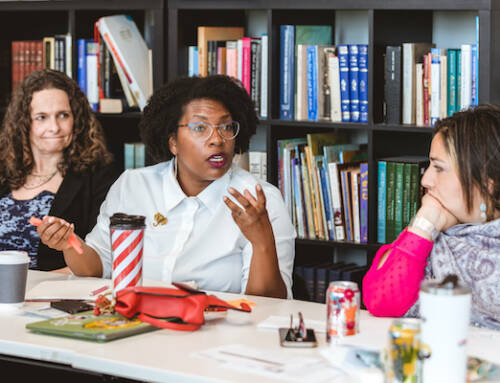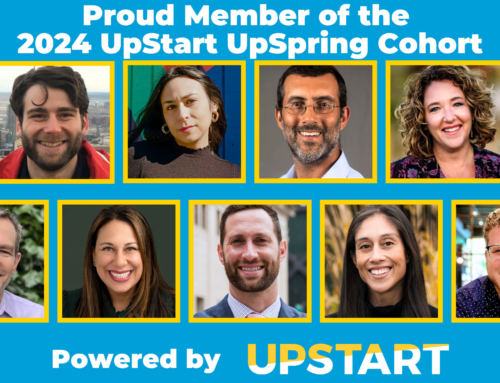The Torah was given to people. Let us not protect it so hard. It is flexible. It is adaptable. It is resilient. It can expand, and contract. And it teaches us, after all, to put people above all.
I had the privilege of hearing Rabbi Edward Feinstein speak at The Covenant Foundations gathering of Jewish educators in Chicago last week. His topic was the one around which the entire field of Jewish communal life is currently dancing how might we successfully and meaningfully engage 21st century Jews?

Rabbi Feinstein used this story as the core metaphor of his talk. Good Jewish educators connect with people where they are. They get under tables. They eat rooster food. But good Jewish educators ultimately help those with rooster-like tendencies to become more human. That is the value that Judaism brings to their lives; it gets them out from under those tables. The role of the Rebbe is to guide them, step by step, towards the awareness of fuller humanity that is at the core of Jewish wisdom, and towards its embrace. Rabbi Feinstein argued that Judaism, symbolized by the Rebbe, can fill the gaping holes in peoples modern lives, holes they may not even be aware of, providing them with the authentic in the face of a culture that idolizes the entrepreneur, creating for them genuine community in a world of radical individualism.
But it is this story and what it symbolizes, which I believe is ultimately preventing the Jewish community from successfully engaging 21st century Jews. Rabbi Feinsteins read represents one line of thought that Judaism has something of tremendous value to offer human beings in general, and Jews in particular, and it is our responsibility to ensure that it is embraced by current generations, and, therefore, preserved for future generations. In this approach, whether we are comfortable admitting it or not, the Rebbes way is of greater value than the boys way; the tradition is ultimately of greater value, wiser, deeper, more true, than the people.
But there is another way to read this story. Might it be possible that the boy is onto something?
That there is value in living under the table, or in eating rooster food, or in speaking rooster? Might it be possible that the boy is not alone, but that boys all over the village are beginning to speak rooster? That the entire generation of young people will soon be clucking away? And that this new way of speaking actually enriches their lives? Might it be possible that, if this is the case, the boy, like Tevye, would scream to the Rebbe: You told me I could be a rooster if I wore human clothes, and so I did; you told me I could be a rooster if I ate human food, and so I did; you told me I could be a rooster if I walked like a human, and so I did; but now you ask me to abandon my rooster speech? I cannot! If I do so, I will break! I will no longer be true to myself, to my roosterness! And he would then walk away from the Rebbe altogether?
In my imagined version of this story, in the end, the Rebbe learns to speak rooster. What the Rebbe represents the tradition itself changes as a result of the encounter. In fact, the very nature of the encounter changes; despite the discrepancy in age and wisdom and perspective, the boy and the Rebbe meet as equals. They are each changed; they each grow. Each loses something; each gains something. And the way of living they each value is changed as well, and has its share of losses, its share of gains. In this approach, the people are of greater importance than the tradition. We are willing to allow the tradition to change, to be influenced, because of the experiences and realities of the people.
This core difference in interpretation of the story represents the underlying conflict in values swirling about this topic, of how we take this tradition and gift it to the next generation. Some of us fear that if the boy contaminates the Rebbe with rooster-ness, the Rebbe and all that he represents will be bastardized, slowly but surely, and all that he stands for will disappear. Others of us fear that if the Rebbe persists in thinking that his language, his food, his clothing, his way of walking in the world, is the only way to be human, he will ultimately be rendered ridiculous, irrelevant, speaking a language nobody understands, cloaked in a garb that prevents him from living, fully, in the world.
I do not have an answer to this challenge. I see both sides. I live my personal life leaning in one direction, and work as a professional leaning towards the other. But here is what I do believe: I trust our tradition. And I trust us, its Rebbes. And I want to encourage us all to trust it more. A bit of rooster-speech wont contaminate the sea of wisdom in which we swim. The Torah was given to people. Let us not protect it so hard. It is flexible. It is adaptable. It is resilient. It can expand, and contract. And it teaches us, after all, to put people above all. So let us, as a community of professionals seeking to translate an ancient tradition for Jews of our time, get under those tables. Take off the cloaks that we are accustomed to wearing. Try new foods. And begin, slowly, to cluck.
This article is cross-posted on eJewish Philanthropy.
Our purpose is to enable entrepreneurs to bring bold Jewish ideas to light. We help them reach Up to people in new ways that are meaningful, more inclusive, and create a brighter future for our Jewish community and the world we share.




